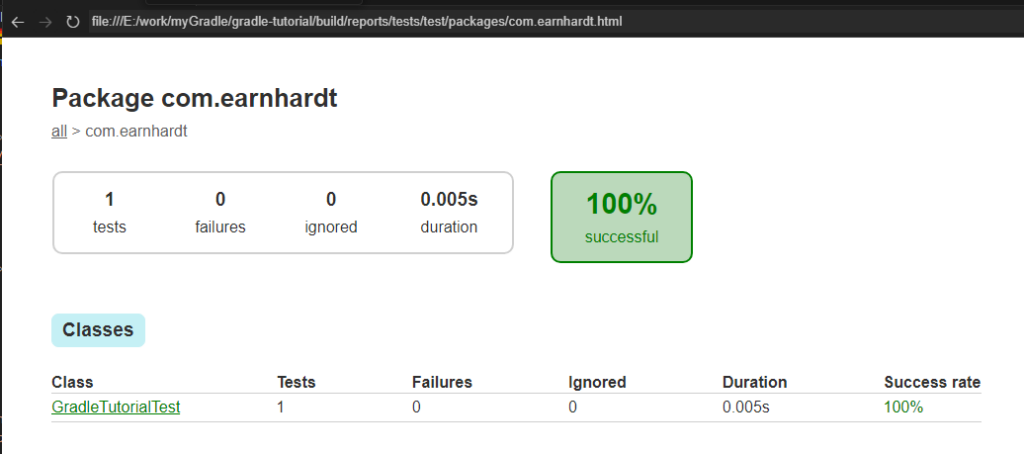Installing manually
Step 1. Download the latest Gradle distribution
The current Gradle release is version 8.2.1, released on 10 Jul 2023. The distribution zip file comes in two flavors:
Download and Extract to disk, then add to path so that you can use gradle init
E:\work\myGradle>gradle init
Select type of project to generate:
1: basic
2: application
3: library
4: Gradle plugin
Enter selection (default: basic) [1..4] 1
Select build script DSL:
1: Kotlin
2: Groovy
Enter selection (default: Kotlin) [1..2] 2
Project name (default: myGradle): gradle-tutorial
Generate build using new APIs and behavior (some features may change in the next minor release)? (default: no) [yes, no]
Task :init
To learn more about Gradle by exploring our Samples at https://docs.gradle.org/8.2.1/samples
BUILD SUCCESSFUL in 54s
2 actionable tasks: 2 executed
Open folder with vsCode to view files…
Java files go in: src/main/java/com/earnhardt
Java Test files go in: src/test/java/com/earnhardt
Update the build.gradle to add ‘Plugins’ , ‘jar-manifest’, ‘repositories’, and ‘dependencies’

Create the main program file:
src/main/java/com/earnhardt/GradleTutorial.java
package com.earnhardt;
public class GradleTutorial {
public static void main(String[] args) {
System.out.println("Gradle 4tw!");
}
}
Create the test program file:
src/test/java/com/earnhardt/GradleTutorialTest.java
package com.earnhardt;
import org.junit.Test;
public class GradleTutorialTest {
@Test
public void verifyNoExceptionThrown() {
GradleTutorial.main(new String[]{});
}
}
Notice, after ‘gradle init’ has been run, you use gradlew going forward….

Once built, test results are stored in build/reports/test/com.earnhardt.html

